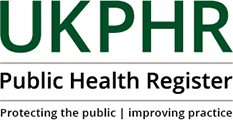Revalidation and the Pearson Review
By Zaira Ejaz, Revalidation & Registration Services Officer
As UKPHR is currently in the process of introducing revalidation for registrants in place of the existing 5-yearly re-registration process, we recently invited Helen Arrowsmith to our Annual Meeting to present GMC’s response to the Pearson review. The aim of the Pearson review was to consider evidence of the impact of revalidation at every level of the process, across all four countries of the UK. As Helen had accompanied Sir Keith Pearson during the review, and was now the GMC’s lead in implementing the GMC’s response, it was a great opportunity to find out more about this significant piece of work and the response from GMC.
Revalidation has had a long history which began when the discussion was raised by the Royal Commission to focus on the relicensing of doctors. GMC consulted on a revalidation model in 2000. In 2008, the Health and Social Care Act introduced the role of the Responsible Officer who would be responsible for making revalidation recommendations to GMC. On 3rd December 2012, revalidation was introduced for all medical professionals registered with the GMC.
In its aim to give assurance that individual doctors are not just qualified, but safe, GMC requires all doctors to provide a whole-practice annual appraisal which encompasses CPD, quality improvement, significant events, complaints and compliments as well as patient and colleague feedback. Revalidation is required once every 5 years and since its implementation, 234,000 doctors are currently subject to revalidation.
Sir Keith Pearson’s focus was to understand the impact of revalidation since its implementation in 2012 and the findings from the review suggest that revalidation is a positive development which has supported doctor’s professionalism over the years. It also showed that doctors were becoming more reflective as a result of going through the process of revalidation. Sir Keith concluded that the new revalidation process is doing as well as could be expected.
It was also great to hear that revalidation has helped to strengthen clinical governance and was positively contributing to tackling poor performance.
Along with the positives of revalidation, the Pearson review also provide recommendations on how the process could best be improved to benefit both individual doctors, their employers, other stakeholders including patients and their carers, and the GMC. Other recommendations included increasing public awareness of revalidation, raising the quality and consistency in appraisal planning as well as supporting individual doctors by reducing the burden of quantity of evidence required.
Since the report was published, GMC has positively worked with stakeholders to implement Sir Keith’s recommendations as a joint endeavour. GMC has also produced an action plan comprising six work streams in order to ensure the process for revalidation runs smoothly going forward. These include patient and public involvement, improving appraisal/burdens, better assurance regarding doctors working in multiple locations, doctors without a responsible officer, tracking the impact of revalidation and improving local governance.
Helen’s presentation on the Pearson review was beneficial in helping her public health audience to understand the positive effects of revalidation on individual doctors. It is evident from the response by GMC that it is doing all it can to ensure the process is efficient and greatly improved for all doctors.
I hope that readers will find this information useful.
Sir Keith Pearson’s review: http://www.gmc-uk.org/Taking_revalidation_forward___Improving_the_process_of_relicensing_for_doctors.pdf_68683704.pdf
GMC’s action plan: http://www.gmc-uk.org/RT___Taking_revalidation_forward_action_plan___DC10267.pdf_71185817.pdf



Comments are closed.